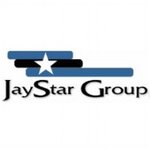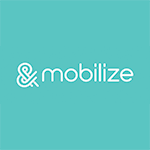Description

Eventcube

PRIZM
Comprehensive Overview: Eventcube vs PRIZM
As of my last update in October 2023, Eventcube and PRIZM are platforms that operate within the event management and ticketing space, although they have different focuses and cater to slightly different market segments. Here’s a comprehensive overview of each:
Eventcube:
a) Primary Functions and Target Markets:
- Primary Functions: Eventcube is a white-label event ticketing and management platform that allows organizers to create customizable ticketing solutions. Key functionalities include ticket sales, merchandise management, membership services, virtual events support, and analytics tools. It’s designed to give control back to event organizers in terms of branding and commission rates.
- Target Markets: Eventcube primarily targets event organizers who prefer a customizable platform. This includes large-scale events, festivals, sports teams, and corporate events. It's attractive to those who want to leverage custom branding and require flexibility in ticketing services.
b) Market Share and User Base:
- Eventcube is known for being one of the more flexible solutions in the niche of white-label ticketing. While it may not have the market penetration of giants like Eventbrite, it has a strong foothold among niche markets that value customization and control over ticket sales.
c) Key Differentiating Factors:
- Customization: Offers extensive customization options that allow companies to create a fully branded ticketing experience.
- White-Labeling: Allows clients to operate under their own brand, reducing dependency on external platforms.
- Low Fees: Compared to some larger platforms, Eventcube typically charges lower fees, which is a significant draw for cost-sensitive organizers.
PRIZM:
a) Primary Functions and Target Markets:
- Primary Functions: PRIZM is a comprehensive audience engagement and social CRM platform. It’s designed to enhance user experience and engagement through data-driven insights. Functions include audience segmentation, personalized marketing campaigns, social media analytics, and detailed reporting.
- Target Markets: PRIZM serves marketing departments and agencies who require in-depth customer insights to drive engagement strategies. It's ideal for businesses focused on consumer goods, retail, and entertainment sectors that rely heavily on social media and digital engagement.
b) Market Share and User Base:
- PRIZM competes with a range of other engagement and CRM platforms, but has carved out a niche with brands looking for sophisticated social CRM solutions. It doesn't typically compete directly with the services provided by traditional event management platforms but holds competitive spots in social media management and engagement analytics.
c) Key Differentiating Factors:
- Data-Driven: Offers deep insights into customer behavior and preferences, allowing for highly targeted marketing.
- Integration: PRIZM often integrates with existing CRM systems and social media platforms, providing a unified approach to audience management.
- Segmentation and Personalization: Provides advanced tools for audience segmentation, allowing for highly personalized marketing efforts that can significantly improve ROI on marketing campaigns.
Conclusion:
While both Eventcube and PRIZM operate within the realm of audience engagement, they serve different primary functions and target audiences. Eventcube is focused on event management and ticketing customization, whereas PRIZM emphasizes data-driven audience insights and social CRM functionalities. The decision between these platforms would depend heavily on the specific needs of the organization—whether they are looking for robust event management capabilities or comprehensive social engagement and customer insights. Market share details can be variable depending on specific regions and industry shifts, but both brands hold solid positions within their niches thanks to their unique offerings.
Contact Info

Year founded :
2013
+44 77 1022 7278
Not Available
United Kingdom
http://www.linkedin.com/company/eventcube-solutions

Year founded :
2017
Not Available
Not Available
Pakistan
Not Available
Feature Similarity Breakdown: Eventcube, PRIZM
As of my last update, Eventcube and PRIZM are both platforms that provide solutions for event management and ticketing. Below is a breakdown of their features and unique aspects:
a) Core Features in Common
-
Ticketing Systems: Both platforms offer comprehensive ticketing systems that allow event organizers to sell and manage tickets efficiently.
-
Customizable Ticketing Pages: Users can create branded ticketing pages to provide a seamless experience for their customers.
-
Customer Relationship Management (CRM): They both integrate CRM capabilities to manage customer data and improve engagement.
-
Payment Processing: Secure payment gateways are a common feature, enabling smooth financial transactions.
-
Event Analytics: Both platforms provide analytics and reporting tools to track sales and attendee engagement.
-
Event Registration: They offer online registration tools to streamline the sign-up process for attendees.
-
Marketing Tools: Email marketing and promotional tools are included to help boost event visibility.
b) User Interface Comparison
-
Eventcube: The UI of Eventcube is typically designed for ease of use, with a focus on creating a straightforward experience for users. It usually offers drag-and-drop functionality and intuitive navigation, making it accessible even for those with limited technical skills.
-
PRIZM: PRIZM's interface may emphasize a more modern and visually appealing design, possibly with more customizable options for branding and layout. The navigation is often user-friendly, but it might provide more detailed customization settings for experienced users.
In general, both UIs aim to offer intuitive user experiences, but Eventcube might lean towards simplicity, while PRIZM might offer more in-depth customization options.
c) Unique Features
-
Eventcube:
- Virtual Event Hosting: Eventcube may provide robust tools for hosting virtual or hybrid events, including video streaming and online networking features.
- White-label Solutions: It could offer more extensive white-label options, allowing users to brand the platform completely as their own.
-
PRIZM:
- Interactive Event Tools: PRIZM might stand out with features that enhance attendee interaction, such as live polling, Q&A sessions, or gamification.
- Advanced Data Insights: It could offer more advanced data analytics tools that provide detailed insights into attendee behavior and ROI assessments.
These distinctions help cater to different user needs, with Eventcube possibly offering more for virtual events and white-label solutions, while PRIZM might provide richer interaction features and deeper analytical insights.
Features

Not Available

Not Available
Best Fit Use Cases: Eventcube, PRIZM
Eventcube and PRIZM are both platforms that serve distinct purposes and cater to different needs within the event management and ticketing domains. Let's delve into the best-fit use cases for each:
Eventcube
a) For what types of businesses or projects is Eventcube the best choice?
Eventcube is particularly well-suited for organizations that require robust, customizable event management and ticketing solutions. Here are some scenarios where Eventcube would be the best fit:
-
Independent Event Organizers and Promoters: Eventcube provides the flexibility and control that independent event organizers need. It allows them to brand their ticket sales platform, manage various events, and maintain direct customer relationships.
-
Sports Events: For sports clubs or organizations that host matches, tournaments, or regular season games, Eventcube offers features like membership management and tailored ticketing solutions, which are key for engaging with fans and managing recurring events.
-
Music and Entertainment Venues: Venues that host concerts, live performances, or festivals can leverage Eventcube's ticketing platform to manage large crowds, multiple ticket tiers, and provide experience-enhancing features like merchandise sales or VIP packages.
-
Community Events and Local Festivals: With its easy-to-use interface and the ability to manage both online and offline events, Eventcube is a great fit for community-driven events that might range from local fairs to larger festivals.
-
Corporate Conferences and Trade Shows: Businesses hosting large-scale conferences or trade shows benefit from Eventcube's comprehensive conference management tools, which can handle everything from ticketing to scheduling and attendee engagement.
PRIZM
b) In what scenarios would PRIZM be the preferred option?
PRIZM is designed with a focus on audience segmentation and targeted communication. Here are the ideal use cases for PRIZM:
-
Marketing Agencies and Digital Marketers: PRIZM shines in scenarios where understanding audience demographics and psychographics is crucial. It helps marketers tailor content and offers to specific audience segments, boosting engagement and conversion rates.
-
Retail Businesses: Retailers looking to enhance their customer segmentation strategies can use PRIZM to better understand consumer behavior patterns and preferences, leading to improved targeting of sales and promotional efforts.
-
Media and Entertainment Companies: By utilizing PRIZM's segmentation capabilities, media companies can target their content more accurately to different audience segments, improving engagement and subscriber retention.
-
Real Estate Developers and Agents: Real estate professionals can use PRIZM to identify and target potential buyers by aligning property offerings with the lifestyle preferences and demographic profiles of various segments.
-
Financial Services: Banks and insurance companies benefit from PRIZM by tailoring financial products and communications to specific customer groups, enhancing acquisition strategies and customer satisfaction.
d) How do these products cater to different industry verticals or company sizes?
-
Industry Vertical Fit:
- Eventcube is versatile across verticals like sports, music, community events, and corporate settings, providing customizable solutions that cater to the specific needs of each industry.
- PRIZM is more about market and audience segmentation, fitting industries like retail, media, real estate, and finance, where understanding and targeting specific consumer groups is crucial.
-
Company Size Adaptability:
- Eventcube can scale with the size of the event. It's suitable for small to medium-sized businesses, but also supports large venues and organizations by offering features that grow with the event size.
- PRIZM caters to mid-to-large-sized companies that have the resources to implement detailed segmentation and analysis strategies aimed at improving customer insights and marketing effectiveness.
In summary, Eventcube is the best choice for businesses needing a flexible, comprehensive event management and ticketing solution, while PRIZM is preferred for those focusing on detailed audience segmentation and targeted marketing efforts. Each caters to various industries but serves distinct roles depending on company needs and strategies.
Pricing

Pricing Not Available

Pricing Not Available
Metrics History
Metrics History
Comparing teamSize across companies
Conclusion & Final Verdict: Eventcube vs PRIZM
To provide a comprehensive conclusion and final verdict for Eventcube and PRIZM, it's essential to analyze each product's features, pricing, ease of use, and overall benefits. Here's a structured breakdown:
a) Considering all factors, which product offers the best overall value?
Best Overall Value: The decision on which product offers the best value depends heavily on the specific needs and goals of the user. If event customization, attendee engagement, and flexibility in ticketing options are priorities, Eventcube may provide the best value due to its comprehensive feature set and versatility. However, if budget constraints are more critical and the focus is on straight forward event ticketing with integrated analytics, PRIZM could be seen as offering better value due to potentially lower costs and streamlined offerings.
b) Pros and Cons of Choosing Each Product
Eventcube Pros:
- Feature-Rich: Offers a wide range of features including customizable event pages, various ticketing options, and integrations with multiple platforms.
- Scalable: Suitable for events of all sizes, making it adaptable for growing businesses.
- User Engagement: Provides tools to enhance attendee interaction and engagement during events.
Eventcube Cons:
- Complexity: The vast array of features might present a learning curve for new users or those with limited technical expertise.
- Pricing: Could be more expensive compared to simpler platforms, potentially impacting budget-focused users.
PRIZM Pros:
- Cost-Effective: Typically offers competitive pricing which could be favorable for smaller events or businesses with tight budgets.
- User-Friendly: Known for a straightforward and easy-to-navigate interface, ensuring quick setup and minimal hassles.
- Integrated Analytics: Provides useful insights and data to optimize future events.
PRIZM Cons:
- Limited Features: May lack some advanced features that larger or more complex events might require.
- Scalability: Might not be as well-suited for significantly large-scale events or organizations with complex requirements.
c) Recommendations for Users Deciding Between Eventcube and PRIZM
-
Evaluate Needs: Prospective users should assess their specific requirements, such as the scale of the event, desired features, and budget constraints. This initial evaluation will help determine which platform aligns better with their needs.
-
Trial Period: Both platforms may offer free trials or demos. Users should take advantage of these opportunities to explore the interface and assess functionality.
-
Consider the Future: If anticipating growth or the need for more comprehensive features in the near future, Eventcube's scalability might be a better long-term investment.
-
Technical Support: Evaluate the level of support provided by each platform. Good customer service can be crucial, especially for users with minimal technical experience or those hosting large events.
-
Budget Constraints: For users prioritizing cost-effectiveness and quick deployment, PRIZM might be the preferred choice. However, any potential limitations in features should be considered against the pricing benefits.
In conclusion, both Eventcube and PRIZM offer unique strengths tailored to different user needs. Eventcube is ideal for those seeking a robust, feature-rich platform, while PRIZM caters well to cost-conscious users looking for ease of use and essential functionalities. Users are encouraged to carefully consider their specific event goals and engage with both platforms through trials or demos before making a final decision.
Add to compare
Add similar companies




